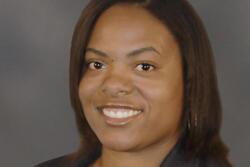Film Review: "Fiddler: A Miracle of Miracles"
Fiddler: A Miracle of Miracles, a new documentary about Fiddler on the Roof, tells the origin story of the beloved Broadway and movie musical. It also follows Fiddler’s wanderings across cultures. Directed by Max Lewkowicz and written by Lewkowicz and Valerie Thomas, this film will no doubt benefit from the popularity of its subject, and viewers will likely find themselves humming “If I Were A Rich Man” and “Tradition” for days after viewing.
Fiddler: A Miracle of Miracles deserves kudos for being not only an entertaining doc, but also an educational and wide-ranging romp through history. Along the way, it provides some smart feminist insights about the musical, and it usefully reminds us that art crosses cultural boundaries in ways that can inform alliance politics.
The subtitle “A Miracles of Miracles” refers both to the song that Motel the Tailor sings when Tevye grants him permission to marry Tzeitel and to the miraculous success and staying power of Fiddler on the Roof. The documentary includes archival interviews with composer Jerry Bock and librettist Joseph Stein, both of whom died in 2010, and on-screen time with lyricist Sheldon Harnick, who is in his 90s; these conversations indicate that many initially doubted the wide appeal of a tale about shtetl Jews in Czarist Russia based on the stories of Yiddish writer Sholem Aleichem.
The early run of the play in Detroit in July 1964 was met with less than stellar reviews; Variety’’s theater critic derisively pronounced that “none of the songs is memorable,” and a parodic musical number “When Messiah Comes” was badly-received and subsequently ditched. When the play arrived in New York City a few months later, theater critic Walter Kerr famously deemed Fiddler “a very near-miss” and thought “it might be an altogether charming musical if only the people of Anatevka did not pause every now and again to give their regards to Broadway with remembrances to Herald Square.”
But other critics—and especially audiences—disagreed, and this theatrical wonder of wonders began a phenomenal Broadway run that then morphed into the 1971 film directed by the non-Jewish Norman Jewison. Since then, Fiddler has been performed by professionals and amateurs worldwide, including in Thailand and Japan. During the Q&A at the Manhattan JCC’s screening of the documentary, director Lewkowicz recounted being asked in Tokyo whether Americans can understand Fiddler since it is so very Japanese! Currently, Fiddler on the Roof in Yiddish is playing in New York, directed by Joel Gray, one of the eminent talking heads in the documentary.
The film represents Jerome Robbins, director-choreographer of the original production, as a sometimes abusive “genius.” Tension between him and Zero Mostel, the famously flamboyant Tevye, was acute because Robbins had named names to the legislative body conducting a Communist witch hunt, the House Un-American Committee. Robbins did so under duress and after resisting for many months; HUAC’s threats to out him were the catalyst for his turning stool pigeon. With this background, the documentary usefully reminds us that Communists, Jews, and LGBTQ folks were all targets in McCarthyite America. This bitter history is neatly counterpointed by the presence of queer Jewish theatrical and movie icon Harvey Fierstein, who smartly reflects on how the meaning of Fiddler transforms depending on one’s stage of life.
Just as the documentary points to the queer resonance of Fiddler, so does it suggest its feminist relevance. For those that focus on Tevye’s daughters and their insistence on choosing their own marriage plots, Fiddler is a “female empowerment story.” Similarly, the “Do You Love Me?” musical exchange between Goldie and Tevye can be interpreted as establishing Goldie as an equal partner who resists showing her emotions too readily. In making this argument, the documentarians remind us that Betty Friedan published The Feminine Mystique just a year prior to Fiddler’s opening and that the second-wave feminist movement was part of the historic backdrop to Fiddler’s success story. The documentary also gives viewers a history lesson on matchmaking, which sometimes led to sexual slavery during Fiddler’s era. Equally fascinating is the casting of Israeli actor Topol rather than Mostel in the film: in the post-1967 war era, casting a sabra rather than an actor of Eastern European origins conveyed a more demanding, virile version of Tevye—and Jewish masculinity more generally.
One of the many entertaining moments in this documentary is a clip that features a duet of “If I Were A Rich Man” with Zero Mostel and Dick Cavett on Cavett’s show. Resisting Mostel’s attempt to get him to correctly sing “bidi-bidi bum,” Cavett says that he’ll do it his own way. Making the sign of the cross, Mostel humorously indicates that Cavett’s way deJews the musical number. That vignette humorously summarizes the myriad ways that the story of shtetl Jews has crossed over cultural boundaries.
Such crossovers compellingly rendered in the documentary include Brooklyn students of color staging a successful production of Fiddler in 1970 over their teachers’ objections that they couldn’t do it respectfully, as well as Lin-Manuel Miranda’s duet with his father-in-law of “To Life” at Miranda’s wedding reception. Less successful is the attempt to represent the regeneration of Eastern European Jewish life in the form of a wedding in the new Anatevka, a Jewish refugee town in Ukraine. In sharp contrast to much of the rest of the documentary, this sequence is inadequately contextualized, and the history of this particular displacement remains opaque. However, when the documentary cuts from the torches carried during the pogrom in Fiddler to footage from Charlottesville and images of the current refugee crisis at our border, we remember that Jewish stories of exile, displacement, loss, and resistance can and should inform our politics in the contemporary moment.
Fiddler: A Miracle of Miracles will have a nation-wide theatrical release on August 23, which is quite a coup for a documentary. It should also be a big hit at Jewish film festivals in the coming year. Prepare to laugh, cry, kibbitz, and question.
Director: Max Lewkowicz
Year of Release: 2019
Running Time: 92 min.
Distributors: Roadside Attractions/Samuel Goldwyn Films







